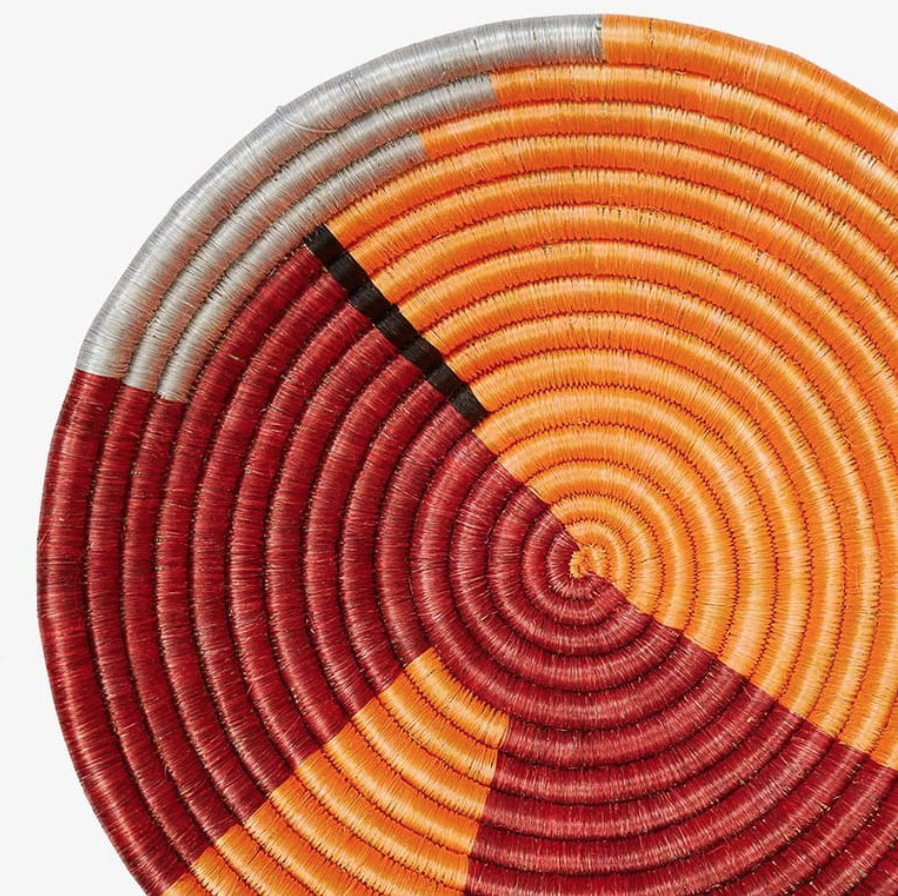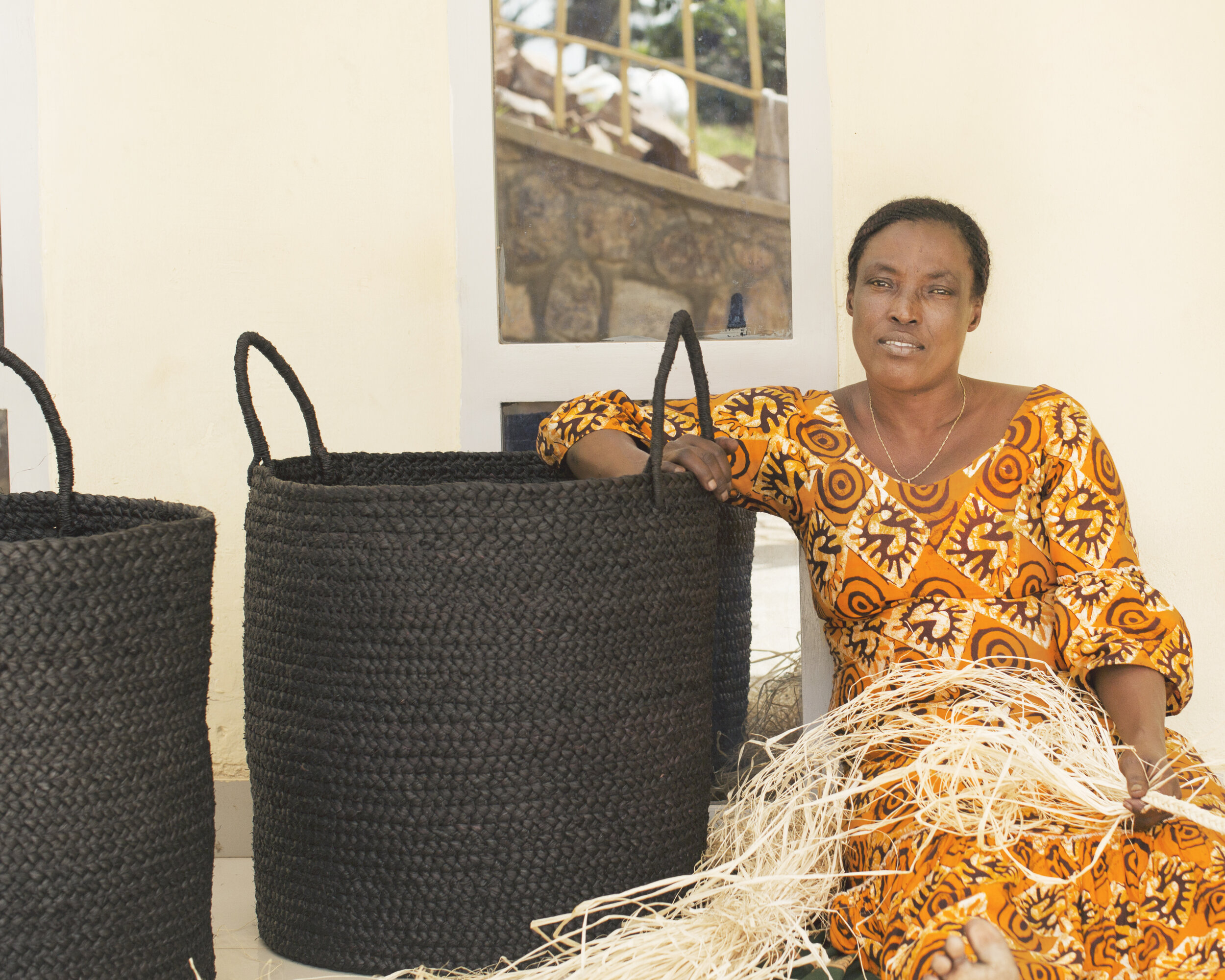Indego Africa’s Basket Weaving, Rwanda and Ghana
Indego Africa was founded in 2007 with a simple idea to empower women artisans in Africa by showcasing their beautiful craft and investing in the power of education. What began as a model to empower and educate women in post-genocide Rwanda, has grown into a commitment to help women, youth, and refugees across Africa become successful artisan entrepreneurs. The social enterprise now partners with more than 1200 artisans and refugees in Rwanda and Ghana using traditional techniques, local materials, and genuine artisanal skill. All of its profits, along with donations, are invested into business, entrepreneurship, and technology education programs for the artisans who handcraft their products.
Indego’s woven baskets and accessories are made using local natural fibres indigenous to the countries and geographic locations, such as sweetgrass, palm leaf, bolga straw, banana leaf and hand-dyed organic yarns. The range of materials is then spun, woven, and decorated by hand to create beautiful home décor. In Rwanda, plateaus baskets are made with strands of sisal hand-dyed in various colours, then carefully wrapped around bunches of sweetgrass. In Ghana, baskets are woven with natural elephant swamp grass in the traditional skills common in the Bolga region, sometimes adorned with cowie shells, a former form of currency until the early 20th century. Design innovation is also part of the training programmes from Indego: “We work together to brainstorm ideas for new products and sewing techniques and I think that’s special,” said Evelyn Dasi, 20, graduate from the social enterprise’s Vocational & Business Training programme. Through partnering with artisan cooperatives and facilitating saving groups among the artisans, women in the network can support each other to weave, develop and gain financial stability together.
Crafting futures for refugee artisans
In 2016, Indego was asked by the United Nations Refugee Agency (UNHCR) to bring their Vocational and Business Training program to the Mahama Refugee Camp. UNHCR wanted a refugee livelihood program where training would result in steady work and the skills learned were portable. They now work with over 180 Burundian and Congolese women at the Mahama and Kigeme Refugee Camps, and continue to train more refugees each year. It is the only livelihood program in Rwanda where refugees earn income from the export market. The baskets made are available as part of the UNHCR’s MADE51 collection.
On August 27, 2020, five artisan women from two cooperatives Indego partners with at Mahama Refugee Camp in Rwanda applied and were accepted to repatriate back to Burundi through UNHCR and the governments of Rwanda and Burundi. They were at Mahama Refugee Camp for five years and were a part of the inaugural group of 558 Burundians who repatriated. The women have all expressed their desire to carry forward their weaving and entrepreneurship skills back to their home country of Burundi. “Weaving is the key in my life when I will go back to Burundi because there are no people who are weavers like us where I will be living,” said Jacqueline, one of the five, “hence it will be the key skill to sell and teach the rest of my community in terms of making money.”
The power of cooperatives
The power of cooperatives in Rwanda are inspiring the next generation of youth to not only take part in these women-owned businesses but to create ones of their very own. Upon graduation in 2016 from the Vocational & Business Training programme, 15 women from Rwanda’s Bugesera District did just that. Together they decided to launch their very own basket weaving enterprise, Gahembe. These budding entrepreneurs took the skills they learned from participating in the training at other cooperatives and applied them to their brand new business venture.
Today, one of the founding members of Gahembe, Therese, is continuing to grow her business skillset with Indego’s Young Leaders Academy programme. “I learned important skills of… project management, strategic management and entrepreneurship.” she said.
With the various training programmes and handcraft production, Indego has effectively created an ecosystem for the artisans to learn and transfer knowledge essential for building up a more resilient craft sector in Rwanda and Ghana.













